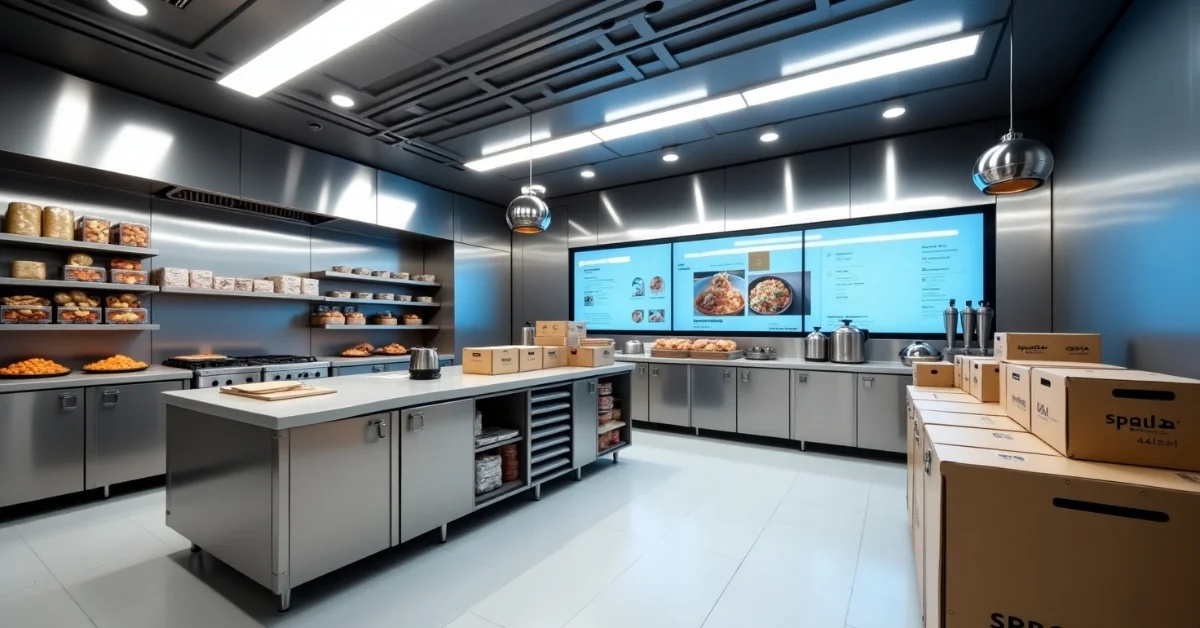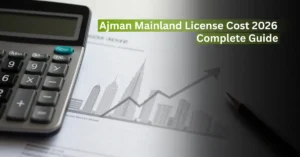Why Cloud Kitchens in Dubai Are a Smart Business Move (2025–2026 Trends)
Dubai has quickly become a global hub for food delivery, and cloud kitchens in Dubai are at the heart of this transformation. With customers increasingly choosing delivery over dine-in, entrepreneurs are turning to virtual restaurants as a cost-effective way to enter the market.
Recent studies show that the UAE’s online food delivery sector is expected to cross USD 2.5 billion by 2026, with Dubai leading the growth. The city’s multicultural population, strong digital infrastructure, and reliance on delivery platforms like Talabat, Zomato, and Deliveroo make it a hotspot for this business model.
For investors, cloud kitchens offer lower overheads compared to traditional restaurants and the flexibility to test multiple cuisines under one roof.
What is a Cloud Kitchen? Understanding the Models
A cloud kitchen, sometimes called a ghost kitchen or virtual restaurant, is a delivery-only food business. Instead of paying for dine-in space, you operate from a commercial kitchen and sell through online platforms.
1. Types of Cloud Kitchens in Dubai
1. Pure Delivery Kitchens
- Operate under one brand.
- Focus only on delivery apps and online orders.
2. Multi-Brand Kitchens
- One license, multiple cuisines.
- Example: An operator runs Italian, Asian, and fast-food brands from the same space.
3. Shared / Co-Working Kitchens
- Rent a space in a larger facility.
- Perfect for startups testing new ideas without high costs.
2. Pros and Cons of Each Model
- Pure Delivery: Simple but limited growth.
- Multi-Brand: Scalable but requires strong management.
- Shared Space: Low cost but less control over operations.
Dubai’s Licensing & Regulatory Requirements
Launching a cloud kitchen in Dubai requires proper approvals and licenses.
1. Mainland vs Free Zone Setup
- Mainland: Greater flexibility to partner with aggregators and cater across Dubai.
- Free Zone: Cost-effective setup, but limited in operating outside the free zone unless via delivery platforms.
2. Trade License Categories
You will need a restaurant license or food preparation license under Dubai’s Department of Economic Development (DED) or the relevant free zone authority.
3. Food Safety & Approvals
Dubai Municipality requires:
- Food safety permits
- Kitchen layout approval
- Health & hygiene inspections
4. Visa, Labour & Immigration
To hire staff, you must register with:
- Ministry of Human Resources & Emiratisation (MOHRE)
- General Directorate of Residency and Foreigners Affairs (GDRFA)
5. Common Licensing Pitfalls
- Submitting incomplete documents
- Choosing the wrong license category
- Ignoring health and safety inspections
Startup Costs, Profit Margins & Financial Planning
The financial side of a cloud kitchen depends on the scale of operations.
1. Typical Cost Breakdown
- Kitchen rental/fit-out: AED 30,000 – AED 80,000
- Licenses & approvals: AED 10,000 – AED 20,000
- Equipment & staff: AED 25,000 – AED 60,000
- Marketing & aggregator fees: 20%–35% of sales
2. Ongoing Expenses
- Utilities (electricity, water, gas)
- Salaries & benefits
- Packaging materials
- Commission to delivery platforms
3. Expected Profits
Cloud kitchens usually enjoy 15%–25% profit margins if managed efficiently. Most setups recover initial costs within 12–18 months.
| Kitchen Size | Setup Cost (AED) | Monthly Expenses (AED) | Break-even Period |
| Small (Shared) | 50,000–80,000 | 15,000–25,000 | 12 months |
| Medium (Standalone) | 120,000–200,000 | 30,000–50,000 | 15 months |
| Large (Multi-brand) | 250,000+ | 60,000–100,000 | 18–24 months |
Operations & Logistics Essentials
Efficient operations make or break a cloud kitchen.
- Kitchen Layout: Optimize workflow to minimize delays.
- Equipment: Ovens, fryers, storage, refrigerators, and POS systems.
- Inventory Management: Build contracts with reliable suppliers.
- Packaging: Invest in eco-friendly, durable containers.
- Logistics: Partner with multiple delivery platforms.
- Quality Control: Train staff to maintain consistent taste and hygiene.
Technology & Marketing Strategies
Technology drives profitability in cloud kitchens.
- POS Systems: Integrate orders across Talabat, Deliveroo, and Zomato.
- AI & Automation: Use tools to forecast demand and reduce waste.
- Branding & Packaging: Attractive branding helps customers remember your kitchen.
- Digital Marketing: Run SEO, social media ads, and influencer campaigns.
- Customer Retention: Offer loyalty discounts, bundle meals, and referral programs.
Challenges and How to Overcome Them
Running a cloud kitchen is rewarding but not without risks.
- Regulatory Delays: Work with experts to avoid paperwork mistakes.
- Aggregator Fees: Negotiate terms or build your own delivery channel.
- Food Quality Issues: Standardize recipes and monitor quality.
- Competition: Differentiate with niche cuisines or premium packaging.
Case Studies: Cloud Kitchens in Dubai
Example 1: Shared Kitchen Startup
A small startup rented space in a shared facility for AED 70,000. By focusing on one cuisine, they broke even in 12 months with a 20% margin.
Example 2: Multi-Brand Kitchen
A larger operator invested AED 300,000 to launch three brands. Despite higher costs, they scaled quickly by cross-promoting their menus. Break-even took 18 months.
How Ripple Can Help You Start a Profitable Cloud Kitchen
At Ripple, we understand the challenges of starting a cloud kitchen in Dubai. Our experts provide:
- Business Setup: Mainland and free zone company formation.
- Licensing Support: Fast approvals from Dubai Municipality and DED.
- PRO Services: Visa processing, labor contracts, and government documentation.
- Accounting & Tax: Guidance on VAT, bookkeeping, and banking.
- Operational Advisory: Supplier network, kitchen planning, and marketing strategies.
Whether you are launching a small shared kitchen or a multi-brand hub, Ripple helps you build a strong foundation.
Book a free consultation today and let Ripple Business Setup turn your cloud kitchen dream into a profitable reality.
Conclusion
A cloud kitchen in Dubai is one of the most profitable business ideas for 2025 and beyond. With strong demand for delivery, lower overheads, and scalable models, it’s an attractive venture for entrepreneurs.
However, success depends on choosing the right setup, understanding regulations, and managing operations efficiently. Partnering with experts ensures you avoid costly mistakes and focus on growth.
Contact Ripple Business Setup today for a tailored cloud kitchen business plan.






